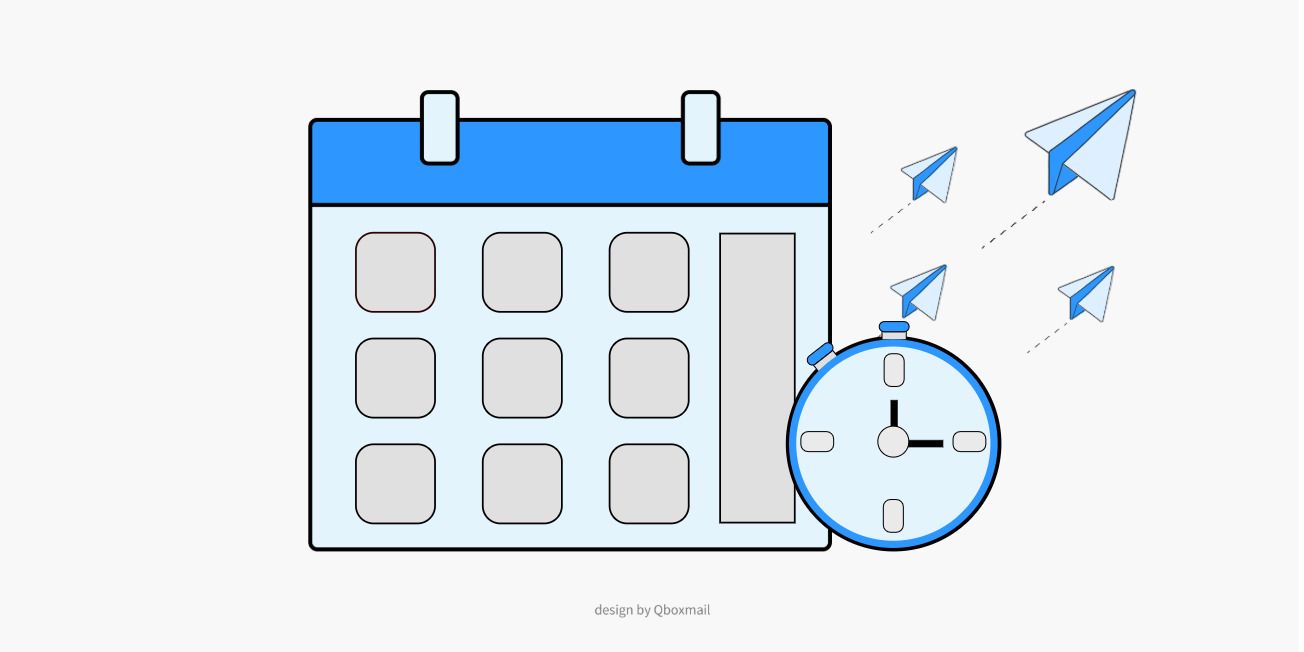Email delivery rate, evaluating and choosing the right provider

When selecting an email service, prioritize assessing the total message quantity and ensure the guaranteed sending frequency is sufficient. Learn more about evaluating a provider’s email delivery rate in this article.
What is the email delivery rate
The email delivery rate is the number of messages, notifications or communications, which are massively sent in a certain time frame.
In the context of email communication, the sending frequency is the number of messages sent to a list of recipients during a specific period, usually measured in minutes, hours or days. The required mailing frequency can vary greatly depending on the communication goals, marketing strategies and needs of the sender.
How select the right provider accordin to your requirements
Choosing the right provider for sending bulk e-mails depends on several factors, including your specific needs, the volume of mailings, the required functionality and the available budget.
Relying solely on the number of available messages or the price could lead to practical issues, so it’s advisable to balance the cost with service quality and ease of implementation into your software.
Choosing a service based solely on costs might compromise reliability. A budget-friendly service may not provide the same deliverability and security guarantees as a more expensive one, increasing the risk of your emails being flagged as spam or not delivered properly.
The quality of email delivery is crucial for the success of your campaigns
Here are some steps you should consider in order to select the most suitable provider for your email frequency needs:
Assess your needs:
Determine the approximate number of emails you plan to send monthly and also consider whether you will have peaks in sending during a specific day or time of year.
Reliability and email delivery:
Ensure your chosen provider guarantees that your emails reach recipients’ inboxes without being marked as spam.
A good sending provider, must guarantee optimal deliverability and make a positive contribution to your communications.
Reliability policy:
Email deliverability is a fundamental part of your company’s communication.
In 2024, specific requirements are anticipated to ensure proper email deliverability: your chosen provider must align with the policies enforced by recipient servers.
Scalability:
Choose a provider that can scale according to your needs. Check the flexibility of the offered plans and their costs, ensuring that the provider can support the increase in the volume of emails you need to send.
Technical Support:
Evaluate the quality of technical support provided by the provider. Good customer support is crucial in case of problems or questions.
Price:
Compare costs among different providers. Make sure you understand the pricing model and check for any hidden fees.
Free trial or demo:
Many companies offer free trials or demos of their services.
Take advantage of these opportunities to assess the usability and compatibility of the service with your needs.
Pratical Example
Imagine you’ve chosen an email sending service provider that offers a high number of messages at an apparently affordable cost. You purchase the service, connect it to your application, and start sending your email campaigns.
Everything seems perfect initially, but as you send emails at a sustained pace, you encounter various practical issues
Limits on sending speed
Errors and frequency limit notifications
While sending emails, you start receiving error notifications indicating the exceeding of limits set by the provider. Many email service providers impose limits on the total number and frequency of messages sent to prevent resource abuse. While these restrictions aim to maintain system efficiency, they may demand more time and effort in the message sending process.
Frustration and negative impact on work
It’s frustrating to send communications to clients if limitations prevent you from reaching your recipients quickly. Offering a limited sending frequency can compromise the effectiveness of your campaigns or the sending of notifications to your e-commerce customers. Focusing solely on the number of available messages or the service cost could lead to operational inefficiencies.
These are issues that may arise over time and could result in you spending more than you initially saved.
If you are looking for a professional service for bulk email sending, whether transactional or promotional for your management system or e-commerce, consider Qboxmail’s Email Delivery service.



